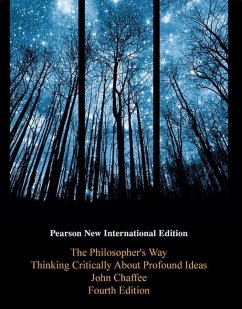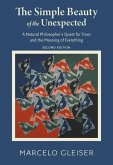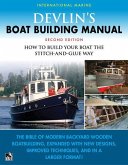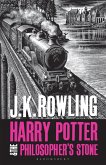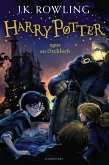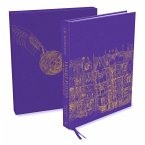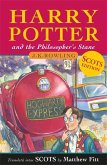Students learn to critically think about philosophy.
The Philosopher’s Way inspires students to think like a philosopher, helping them become more accomplished critical thinkers and develop the analytical tools needed to think philosophically about important issues.
This text features readings from major philosophical texts and commentary to guide students in their understanding of the topics. It is organized by questions central to the main branches of philosophy and examines the ideas of philosophers past and present.
A better teaching and learning experience
This program will provide a better teaching and learning experience—for you and your students. Here’s how:
Personalize Learning – MySearchLab delivers proven results in helping students succeed, provides engaging experiences that personalize learning, and comes from a trusted partner with educational expertise and a deep commitment to helping students and instructors achieve their goals.
Improve Critical Thinking – Critical thinking features challenge students to go beyond their reading and explore the connections philosophy has in their everyday lives.
Engage Students – Full-color visuals bring topics to life, and writing examples give students a foundation for their own philosophical exploration.
Support Instructors – MySearchLab, Instructor’s Manual, Test Bank, MyTest, and PowerPoint slides are available.
Features + Benefits
STUDENTS LEARN TO CRITICALLY THINK ABOUT PHILOSOPHY.
The Philosopher’s Way is organized around questions central to the main branches of philosophy. (ex. p. 101)
Each chapter offers a historically-organized survey of perspectives on the chapter question. (ex. p. 102)
Students are encouraged to use the perspectives presented to develop their own philosophical answers. (ex. p. 111)
PERSONALIZE LEARNING WITH MYSEARCHLAB
MySearchLab with eText can be packaged with this text.
MySearchLab provides engaging experiences that personalize learning, and comes from a trusted partner with educational expertise and a deep commitment to helping students and instructors achieve their goals.
eText — Just like the printed text, you can highlight and add notes to the eText or download it to your iPad.
Assessment — Chapter quizzes and flashcards offer immediate feedback and report directly to the gradebook.
Writing and Research — A wide range of writing, grammar and research tools and access to a variety of academic journals, census data, Associated Press newsfeeds, and discipline-specific readings help you hone your writing and research skills.
IMPROVE CRITICAL THINKING
“Reading Critically” boxes offer questions that challenge students to think deeply about a philosopher’s writing. Each question helps students to do one of the following (ex. p. 61):
Critically evaluate a philosopher’s claim
Improve comprehension of difficult passages
Compare ideas of philosophers
Apply philosophers’ ideas to different situations
“Thinking Philosophically” boxes challenge students to critically examine their own beliefs and assumptions while applying the ideas of philosophers to their experiences. (ex. p. 238)
A Concept Map opens each chapter and shows how the ideas and thinkers in the chapter relate to one another. (ex. p 351)
The following resources are at the end of each chapter:
Visual Summaries provide a round-up of the chapter. (ex. p. 424)
An annotated list of Film and Literature offers ways to further explore the chapter’s concepts. (ex. p. 425)
Making Connections essays suggest how the chapter themes apply to students’ lives. (ex. p. 161)
Key terms are defined in the text and margin glossaries. (ex. p. 63)
ENGAGE STUDENTS
The full-color visuals in the text add another layer of meaning to the study of philosophy. Selected from the world of art and journalism, the images supplement the readings and concepts in the chapter by offering a “visual philosophy” or posing questions for thought. (ex. p. 175)
Portraits of classic and contemporary philosophers are included. (ex. p. 110)
“Writing About Philosophy” sections challenge students to express their ideas about philosophy in writing. These sections include (ex. p. 92):
An assignment
Suggestions for approaching the topic
A sample student response
SUPPORT INSTRUCTORS
The Instructor’s Manual and Test Bank includes suggestions for teaching every chapter of the text, including chapter summaries, activities, and hundreds of sample test questions. Available within the instructor account of MySearchLab and at www.pearsonhighered.com.
MyTest is computerized software that allows instructors to create personalized exams. Existing test questions from the Test Bank can be edited and new questions can be added. Other special features include random generation of test questions, creation of alternate versions of the same test, scrambling question sequence, and test preview before printing. Available within the instructor account in MySearchLab and at www.pearsonmytest.com .
PowerPoint slides contain chapter outlines, selected images from the text, and critical thinking and philosophical statements to use for classroom discussion. Available within the instructor account in MySearchLab and at www.pearsonhighered.com .
Common Philosophical Terms is a reference guide of important terms and definitions instructors may give to their students.
Create a Custom Text: For enrollments of at least 25, create your own textbook by combining chapters from best-selling Pearson textbooks and/or reading selections in the sequence you want. To begin building your custom text, visit www.pearsoncustomlibrary.com. You may also work with a dedicated Pearson Custom editor to create your ideal text–publishing your own original content or mixing and matching Pearson content. Contact your Pearson Publisher’s Representative to get started.
1. BRIEF TABLE OF CONTENTS
Chapter 1What is Philosophy? Thinking Philosophically About Life
Chapter 2 What is the Philosopher’s Way? Socrates and the Examined Life
Chapter 3 Who are You? Consciousness, Identity, and the Self
Chapter 4 Are You Free? Freedom and Determinism
Chapter 5 How Can We Know the Nature of Reality? Philosophical Foundations
Chapter 6 What is Real? What is True? Further Explorations
Chapter 7 Is there a Spiritual Reality? Exploring the Philosophy of Religion
Chapter 8 Are there Moral Truths?Thinking About Ethics
Chapter 9 What are Right Actions? Constructing an Ethical Theory
2. FULL TABLE OF CONTENTS
Preface
Chapter 1: What is Philosophy? Thinking Philosophically About Life
1.1 Why Study Philosophy?
1.2 Defining Philosophy
Philosophy Is the Pursuit of Wisdom
Philosophy Begins with Wonder
Philosophy Is a Dynamic Process
The Ultimate Aim of Philosophy
1.3 Thinking Philosophically: Becoming a Critical Thinker
Thinking Philosophically What Is Your Philosophy of Life?
Qualities of a Critical Thinker
Thinking Philosophically Who Are Your Models of Critical Thinking?
The Process of Critical Thinking
Thinking Philosophically Applying the Critical Thinking Model
Stages in Critical Thinking
1.4 Understanding Arguments
The Structure of Arguments
Evaluating Arguments
Deductive Arguments
Inductive Arguments
Informal Fallacies
Thinking Philosophically Evaluating Arguments
1.5 Branches of Philosophy
Metaphysics
Thinking Philosophically Are You Willing to Question Your Beliefs?
Thinking Philosophically How Do You Know What Is True?
Epistemology
Ethics
Thinking Philosophically Do You Have a Moral Philosophy?
Political and Social Philosophy
Aesthetics
1.6 Reading Critically: Working with Primary Sources
Bertrand Russell, from The Value of Philosophy
Reading Critically Analyzing Russell on the Value of Philosophy
1.7 Making Connections: The Search for a Meaningful Life
Thinking Philosophically What Do You Hope to Learn?
Writing About Philosophy Analyzing Your Beliefs
visual summary
chapter review
for further reading, viewing & research
Chapter 2: What is the Philosopher’s Way? Socrates and the Examined Life
2.1 Socrates: A Model for Humanity
Hesiod, Homer, and the Birth of Philosophy
Karl Jaspers, The Axial Period
A Man of Greece
A Midwife of Ideas
The Wisest of Men?
Plato, from The Apology
Reading Critically Analyzing Socrates on Wisdom and Humility
2.2 The Socratic Method
Plato, from The Republic
Reading Critically Analyzing a Socratic Dialogue
2.3 Socrates’ Central Concern: The Soul
Plato, from The Apology
Reading Critically Analyzing the Core Teachings of Socrates
2.4 The Trial and Death of Socrates
Plato, from The Apology
Thinking Philosophically Countering Personal Attacks
Reading Critically Analyzing Socrates on Trial
2.5 Making Connections: Socrates’ Legacy
Thinking Philosophically Is Socrates Relevant Today?
Writing About Philosophy A Socratic Dialogue
visual summary
chapter review
for further reading, viewing & research
Chapter 3: Who are You? Consciousness, Identity, and the Self
3.1 Know Thyself?
Thinking Philosophically Do You Know Yourself?
3.2 The Soul Is Immortal: Socrates and Plato
Plato, from Phaedo
Reading Critically Analyzing Socrates on the Self
Plato, from Phaedrus, The Chariot Analogy
3.3 St. Augustine’s Synthesis of Plato and Christianity
Thinking Philosophically Do you believe in an immortal soul?
3.4 Descartes’ Modern Perspective on the Self
Rene Descartes, from Meditations on First Philosophy
Thinking Philosophically Are you a Seeker After Truth?
Reading Critically Analyzing Descartes on the Mind/Body Problem
3.5 The Self Is Consciousness: Locke
John Locke, from On Personal Identity
Thinking Philosophically Applying Locke’s Ideas
Reading Critically Analyzing Locke on the Conscious Self
3.6 There Is No Self: Hume
David Hume, from On Personal Identity
Reading Critically Analyzing Hume on the Absence of Self
3.7 We Construct the Self: Kant
Immanuel Kant, from Prolegomena to Any Future Metaphysics
Immanuel Kant, from Critique of Pure Reason
Thinking Philosophically Sense, Perception, and Your Self
Reading Critically Analyzing Kant’s Unity of Consciousness
3.8 The Self Is Multi-Layered: Freud
Sigmund Freud, from An Outline of Psychoanalysis
Reading Critically Analyzing Freud’s Ideas about Mind
3.9 The Self Is How You Behave: Ryle
Gilbert Ryle, from The Concept of Mind
Reading Critically Analyzing Ryle’s View of Self as Behavior
3.10 The Self Is the Brain: Materialism
Churchland, from On Eliminative Materialism
Reading Critically Analyzing Churchland’s Materialism
3.11 The Self is Embodied Subjectivity: Husserl and Merleau-Ponty
Marcel Proust, from In Search of Time Lost
Thinking Philosophically Applying Phenomenology
Marcel Proust, from Within a Budding Grove
3.12 Buddhist Concepts of Self
Milindaphanha, The Simile of the Chariot
Reading Critically Analyzing the Buddhist Chariot Analogy
3.13 Making Connections: In Search of the Self
Thinking Philosophically What Is Your Concept of the Self?
Writing About Philosophy Defining the Self
visual summary
chapter review
for further reading, viewing & research
Chapter 4: Are You Free? Freedom and Determinism
4.1 Are You the Master of Your Fate?
Thinking Philosophically What Are Your Assumptions About Freedom?
4.2 Determinism
Baron d’Holbach, from The System of Nature
Thinking Philosophically Do You Choose Freely?
Reading Critically Analyzing Baron d’Holbach on the Illusion of Freedom
4.3 Compatibilism
External Constraints May Limit Freedom: Stace
W. T. Stace, from Religion and the Modern Mind
Internal Constraints May Also Limit Freedom: Schlick
Free Will Is a Human Creation: Dennett
Reading Critically Evaluating Compatibilism
4.4 Indeterminism and Libertarianism
We Live in a World of Possibilities: James
William James, from The Will to Believe
Reading Critically Analyzing James on Free Will
We Create Ourselves Through Our Choices: Sartre
Jean-Paul Sartre, from Existentialism Is a Humanism
Reading Critically Analyzing Sartre on Freedom, Choice, and Responsibility
4.5 A Feminist Analysis of Freedom
Jean Grimshaw, from Autonomy and I
Students learn to critically think about philosophy. The Philosopher's Way inspires students to think like a philosopher, helping them become more accomplished critical thinkers and develop the analytical tools needed to think philosophically about important issues. This text features readings from major philosophical texts and commentary to guide students in their understanding of the topics. It is organized by questions central to the main branches of philosophy and examines the ideas of philosophers past and present. A better teaching and learning experience This program will provide a better teaching and learning experience—for you and your students. Here's how: * Personalize Learning - MySearchLab delivers proven results in helping students succeed, provides engaging experiences that personalize learning, and comes from a trusted partner with educational expertise and a deep commitment to helping students and instructors achieve their goals. * Improve Critical Thinking - Critical thinking features challenge students to go beyond their reading and explore the connections philosophy has in their everyday lives. * Engage Students - Full-color visuals bring topics to life, and writing examples give students a foundation for their own philosophical exploration. * Support Instructors - MySearchLab, Instructor's Manual, Test Bank, MyTest, and PowerPoint slides are available.
The Philosopher’s Way inspires students to think like a philosopher, helping them become more accomplished critical thinkers and develop the analytical tools needed to think philosophically about important issues.
This text features readings from major philosophical texts and commentary to guide students in their understanding of the topics. It is organized by questions central to the main branches of philosophy and examines the ideas of philosophers past and present.
A better teaching and learning experience
This program will provide a better teaching and learning experience—for you and your students. Here’s how:
Personalize Learning – MySearchLab delivers proven results in helping students succeed, provides engaging experiences that personalize learning, and comes from a trusted partner with educational expertise and a deep commitment to helping students and instructors achieve their goals.
Improve Critical Thinking – Critical thinking features challenge students to go beyond their reading and explore the connections philosophy has in their everyday lives.
Engage Students – Full-color visuals bring topics to life, and writing examples give students a foundation for their own philosophical exploration.
Support Instructors – MySearchLab, Instructor’s Manual, Test Bank, MyTest, and PowerPoint slides are available.
Features + Benefits
STUDENTS LEARN TO CRITICALLY THINK ABOUT PHILOSOPHY.
The Philosopher’s Way is organized around questions central to the main branches of philosophy. (ex. p. 101)
Each chapter offers a historically-organized survey of perspectives on the chapter question. (ex. p. 102)
Students are encouraged to use the perspectives presented to develop their own philosophical answers. (ex. p. 111)
PERSONALIZE LEARNING WITH MYSEARCHLAB
MySearchLab with eText can be packaged with this text.
MySearchLab provides engaging experiences that personalize learning, and comes from a trusted partner with educational expertise and a deep commitment to helping students and instructors achieve their goals.
eText — Just like the printed text, you can highlight and add notes to the eText or download it to your iPad.
Assessment — Chapter quizzes and flashcards offer immediate feedback and report directly to the gradebook.
Writing and Research — A wide range of writing, grammar and research tools and access to a variety of academic journals, census data, Associated Press newsfeeds, and discipline-specific readings help you hone your writing and research skills.
IMPROVE CRITICAL THINKING
“Reading Critically” boxes offer questions that challenge students to think deeply about a philosopher’s writing. Each question helps students to do one of the following (ex. p. 61):
Critically evaluate a philosopher’s claim
Improve comprehension of difficult passages
Compare ideas of philosophers
Apply philosophers’ ideas to different situations
“Thinking Philosophically” boxes challenge students to critically examine their own beliefs and assumptions while applying the ideas of philosophers to their experiences. (ex. p. 238)
A Concept Map opens each chapter and shows how the ideas and thinkers in the chapter relate to one another. (ex. p 351)
The following resources are at the end of each chapter:
Visual Summaries provide a round-up of the chapter. (ex. p. 424)
An annotated list of Film and Literature offers ways to further explore the chapter’s concepts. (ex. p. 425)
Making Connections essays suggest how the chapter themes apply to students’ lives. (ex. p. 161)
Key terms are defined in the text and margin glossaries. (ex. p. 63)
ENGAGE STUDENTS
The full-color visuals in the text add another layer of meaning to the study of philosophy. Selected from the world of art and journalism, the images supplement the readings and concepts in the chapter by offering a “visual philosophy” or posing questions for thought. (ex. p. 175)
Portraits of classic and contemporary philosophers are included. (ex. p. 110)
“Writing About Philosophy” sections challenge students to express their ideas about philosophy in writing. These sections include (ex. p. 92):
An assignment
Suggestions for approaching the topic
A sample student response
SUPPORT INSTRUCTORS
The Instructor’s Manual and Test Bank includes suggestions for teaching every chapter of the text, including chapter summaries, activities, and hundreds of sample test questions. Available within the instructor account of MySearchLab and at www.pearsonhighered.com.
MyTest is computerized software that allows instructors to create personalized exams. Existing test questions from the Test Bank can be edited and new questions can be added. Other special features include random generation of test questions, creation of alternate versions of the same test, scrambling question sequence, and test preview before printing. Available within the instructor account in MySearchLab and at www.pearsonmytest.com .
PowerPoint slides contain chapter outlines, selected images from the text, and critical thinking and philosophical statements to use for classroom discussion. Available within the instructor account in MySearchLab and at www.pearsonhighered.com .
Common Philosophical Terms is a reference guide of important terms and definitions instructors may give to their students.
Create a Custom Text: For enrollments of at least 25, create your own textbook by combining chapters from best-selling Pearson textbooks and/or reading selections in the sequence you want. To begin building your custom text, visit www.pearsoncustomlibrary.com. You may also work with a dedicated Pearson Custom editor to create your ideal text–publishing your own original content or mixing and matching Pearson content. Contact your Pearson Publisher’s Representative to get started.
1. BRIEF TABLE OF CONTENTS
Chapter 1What is Philosophy? Thinking Philosophically About Life
Chapter 2 What is the Philosopher’s Way? Socrates and the Examined Life
Chapter 3 Who are You? Consciousness, Identity, and the Self
Chapter 4 Are You Free? Freedom and Determinism
Chapter 5 How Can We Know the Nature of Reality? Philosophical Foundations
Chapter 6 What is Real? What is True? Further Explorations
Chapter 7 Is there a Spiritual Reality? Exploring the Philosophy of Religion
Chapter 8 Are there Moral Truths?Thinking About Ethics
Chapter 9 What are Right Actions? Constructing an Ethical Theory
2. FULL TABLE OF CONTENTS
Preface
Chapter 1: What is Philosophy? Thinking Philosophically About Life
1.1 Why Study Philosophy?
1.2 Defining Philosophy
Philosophy Is the Pursuit of Wisdom
Philosophy Begins with Wonder
Philosophy Is a Dynamic Process
The Ultimate Aim of Philosophy
1.3 Thinking Philosophically: Becoming a Critical Thinker
Thinking Philosophically What Is Your Philosophy of Life?
Qualities of a Critical Thinker
Thinking Philosophically Who Are Your Models of Critical Thinking?
The Process of Critical Thinking
Thinking Philosophically Applying the Critical Thinking Model
Stages in Critical Thinking
1.4 Understanding Arguments
The Structure of Arguments
Evaluating Arguments
Deductive Arguments
Inductive Arguments
Informal Fallacies
Thinking Philosophically Evaluating Arguments
1.5 Branches of Philosophy
Metaphysics
Thinking Philosophically Are You Willing to Question Your Beliefs?
Thinking Philosophically How Do You Know What Is True?
Epistemology
Ethics
Thinking Philosophically Do You Have a Moral Philosophy?
Political and Social Philosophy
Aesthetics
1.6 Reading Critically: Working with Primary Sources
Bertrand Russell, from The Value of Philosophy
Reading Critically Analyzing Russell on the Value of Philosophy
1.7 Making Connections: The Search for a Meaningful Life
Thinking Philosophically What Do You Hope to Learn?
Writing About Philosophy Analyzing Your Beliefs
visual summary
chapter review
for further reading, viewing & research
Chapter 2: What is the Philosopher’s Way? Socrates and the Examined Life
2.1 Socrates: A Model for Humanity
Hesiod, Homer, and the Birth of Philosophy
Karl Jaspers, The Axial Period
A Man of Greece
A Midwife of Ideas
The Wisest of Men?
Plato, from The Apology
Reading Critically Analyzing Socrates on Wisdom and Humility
2.2 The Socratic Method
Plato, from The Republic
Reading Critically Analyzing a Socratic Dialogue
2.3 Socrates’ Central Concern: The Soul
Plato, from The Apology
Reading Critically Analyzing the Core Teachings of Socrates
2.4 The Trial and Death of Socrates
Plato, from The Apology
Thinking Philosophically Countering Personal Attacks
Reading Critically Analyzing Socrates on Trial
2.5 Making Connections: Socrates’ Legacy
Thinking Philosophically Is Socrates Relevant Today?
Writing About Philosophy A Socratic Dialogue
visual summary
chapter review
for further reading, viewing & research
Chapter 3: Who are You? Consciousness, Identity, and the Self
3.1 Know Thyself?
Thinking Philosophically Do You Know Yourself?
3.2 The Soul Is Immortal: Socrates and Plato
Plato, from Phaedo
Reading Critically Analyzing Socrates on the Self
Plato, from Phaedrus, The Chariot Analogy
3.3 St. Augustine’s Synthesis of Plato and Christianity
Thinking Philosophically Do you believe in an immortal soul?
3.4 Descartes’ Modern Perspective on the Self
Rene Descartes, from Meditations on First Philosophy
Thinking Philosophically Are you a Seeker After Truth?
Reading Critically Analyzing Descartes on the Mind/Body Problem
3.5 The Self Is Consciousness: Locke
John Locke, from On Personal Identity
Thinking Philosophically Applying Locke’s Ideas
Reading Critically Analyzing Locke on the Conscious Self
3.6 There Is No Self: Hume
David Hume, from On Personal Identity
Reading Critically Analyzing Hume on the Absence of Self
3.7 We Construct the Self: Kant
Immanuel Kant, from Prolegomena to Any Future Metaphysics
Immanuel Kant, from Critique of Pure Reason
Thinking Philosophically Sense, Perception, and Your Self
Reading Critically Analyzing Kant’s Unity of Consciousness
3.8 The Self Is Multi-Layered: Freud
Sigmund Freud, from An Outline of Psychoanalysis
Reading Critically Analyzing Freud’s Ideas about Mind
3.9 The Self Is How You Behave: Ryle
Gilbert Ryle, from The Concept of Mind
Reading Critically Analyzing Ryle’s View of Self as Behavior
3.10 The Self Is the Brain: Materialism
Churchland, from On Eliminative Materialism
Reading Critically Analyzing Churchland’s Materialism
3.11 The Self is Embodied Subjectivity: Husserl and Merleau-Ponty
Marcel Proust, from In Search of Time Lost
Thinking Philosophically Applying Phenomenology
Marcel Proust, from Within a Budding Grove
3.12 Buddhist Concepts of Self
Milindaphanha, The Simile of the Chariot
Reading Critically Analyzing the Buddhist Chariot Analogy
3.13 Making Connections: In Search of the Self
Thinking Philosophically What Is Your Concept of the Self?
Writing About Philosophy Defining the Self
visual summary
chapter review
for further reading, viewing & research
Chapter 4: Are You Free? Freedom and Determinism
4.1 Are You the Master of Your Fate?
Thinking Philosophically What Are Your Assumptions About Freedom?
4.2 Determinism
Baron d’Holbach, from The System of Nature
Thinking Philosophically Do You Choose Freely?
Reading Critically Analyzing Baron d’Holbach on the Illusion of Freedom
4.3 Compatibilism
External Constraints May Limit Freedom: Stace
W. T. Stace, from Religion and the Modern Mind
Internal Constraints May Also Limit Freedom: Schlick
Free Will Is a Human Creation: Dennett
Reading Critically Evaluating Compatibilism
4.4 Indeterminism and Libertarianism
We Live in a World of Possibilities: James
William James, from The Will to Believe
Reading Critically Analyzing James on Free Will
We Create Ourselves Through Our Choices: Sartre
Jean-Paul Sartre, from Existentialism Is a Humanism
Reading Critically Analyzing Sartre on Freedom, Choice, and Responsibility
4.5 A Feminist Analysis of Freedom
Jean Grimshaw, from Autonomy and I
Students learn to critically think about philosophy. The Philosopher's Way inspires students to think like a philosopher, helping them become more accomplished critical thinkers and develop the analytical tools needed to think philosophically about important issues. This text features readings from major philosophical texts and commentary to guide students in their understanding of the topics. It is organized by questions central to the main branches of philosophy and examines the ideas of philosophers past and present. A better teaching and learning experience This program will provide a better teaching and learning experience—for you and your students. Here's how: * Personalize Learning - MySearchLab delivers proven results in helping students succeed, provides engaging experiences that personalize learning, and comes from a trusted partner with educational expertise and a deep commitment to helping students and instructors achieve their goals. * Improve Critical Thinking - Critical thinking features challenge students to go beyond their reading and explore the connections philosophy has in their everyday lives. * Engage Students - Full-color visuals bring topics to life, and writing examples give students a foundation for their own philosophical exploration. * Support Instructors - MySearchLab, Instructor's Manual, Test Bank, MyTest, and PowerPoint slides are available.

